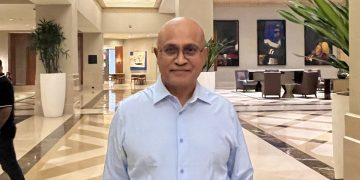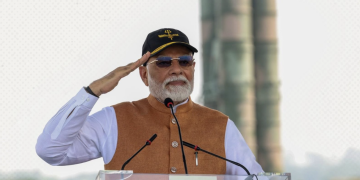Mr Lincoln Lewis, a Africanist labor leader in Guyana, wrote that President Irfaan Ali “is usurping and undermining the work done by the CARICOM Reparations Commission” (SN Aug 31). Lewis did not state specifically with illustrations and compelling evidence how President Ali is usurping and undermining the work of the Commission. I cannot and do not speak for the President. My purpose here is not a defense of his remarks on slavery of August 24 on the eve of the apology by the visiting six heirs of John Gladstone for slavery and indentureship. Maybe Lewis and I read different versions of the President’s release to the media or it could be that we have different understandings or interpretations of His Excellency’s remarks. Also, Lewis injected Bharrat Jagdeo’s name into his commentary when the Vice President made no remarks on the Gladstone apology or on slavery or indentureship. Why? There is no relevance to the VP. The President spoke for and on behalf of the government not the VP. Lewis also made a remark on indentureship which I will correct in another missive.
First, a note on indentureship and slavery – Slavery was not associated solely with Africans but in the words of Prof Hugh Tinker, indentureship was a new form of slavery. The new indentureship and free labor system was expected to demonstrate the superiority of “free” over “slave labour” showing the former as more cost effective than slavery in the production of tropical products for imperial markets. The late Trinidad PM Dr Eric Williams, a historian, wrote that slavery was no longer profitable for the plantation owners and the colonial empires in the 19th century. He argued it was abolished and the freed slaves were left to fend for themselves. “Slave labor was replaced by the now more profitable indentureship labor which in reality was akin to slave labor”. Indentureship started in Reunion island in 1928. Mauritius experimented with it in 1934. It was a success in both places — very profitable, allowing the investors to expand portfolios. John Gladstone introduced Indian indentureship in Guyana in 1838 with indentured servants replacing slave laborers.
As I understood Ali’s remarks, the President supplemented and reinforced the demand for African enslavement. He did not claim credit for the Gladstone presence in Guyana, and he did not equate slavery with indentureship; he did not steal the spotlight on August 25 when the heirs of Gladstone apologized at UG. The President was very respectful to the organizers of the UG get together. He stated, among other pointers, “While acknowledging … atrocities of slavery and offering an apology is undeniably significant, it constitutes just the initial step on the path towards achieving comprehensive reparative justice for African enslavement”. He called for reparations for slavery, meaning financial compensation. President Ali also went further than the CRC. He proposed that “those involved in the slave trade be posthumously charged for crimes against humanity”. He also made the very remarks at the UN a couple years ago.

Instead of feeling that their mandate was usurped, I think the commission would be happy with Ali’s remarks. One should ask Prof. Hillary Beckles (Chair of CRC) and Eric Phillips (Chair of Guyana branch of CRC) if they agree with Lewis that President Ali’s remarks undermine the work of the commission.
Lewis lambasted President Ali for mentioning indentureship. The President did not mention reparative justice for indentureship in his remarks (unless I miss that line), and descendants of that system of labor who I engaged were peeved. Prof Hillary Beckles stated in the British Parliament a couple years ago and in subsequent speeches that indentureship and slavery and the regional Amerindians or native peoples must receive reparations for abuses suffered, and he used the term “indentured slavery” suggesting that indentureship was a form of slavery. Indeed, as noted, Prof Hugh Tinker called it a new form of slavery as did several other scholars. The late British Prime Minister Lord John Russell, a Liberal, also referred to it as a ‘new system of slavery’, opposing it as against Conservative PM William Gladstone, son of John Gladstone, who approved of it.



































































